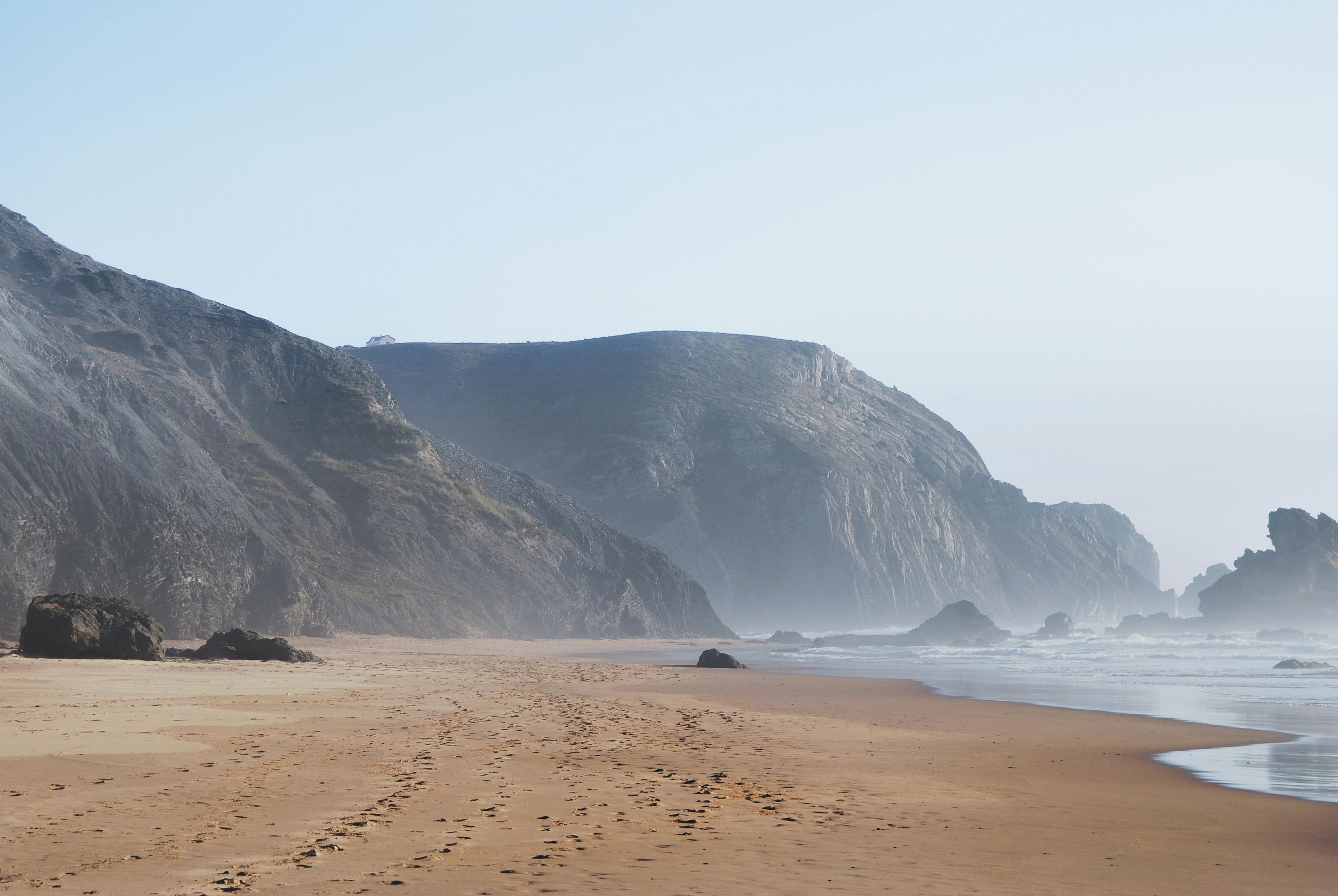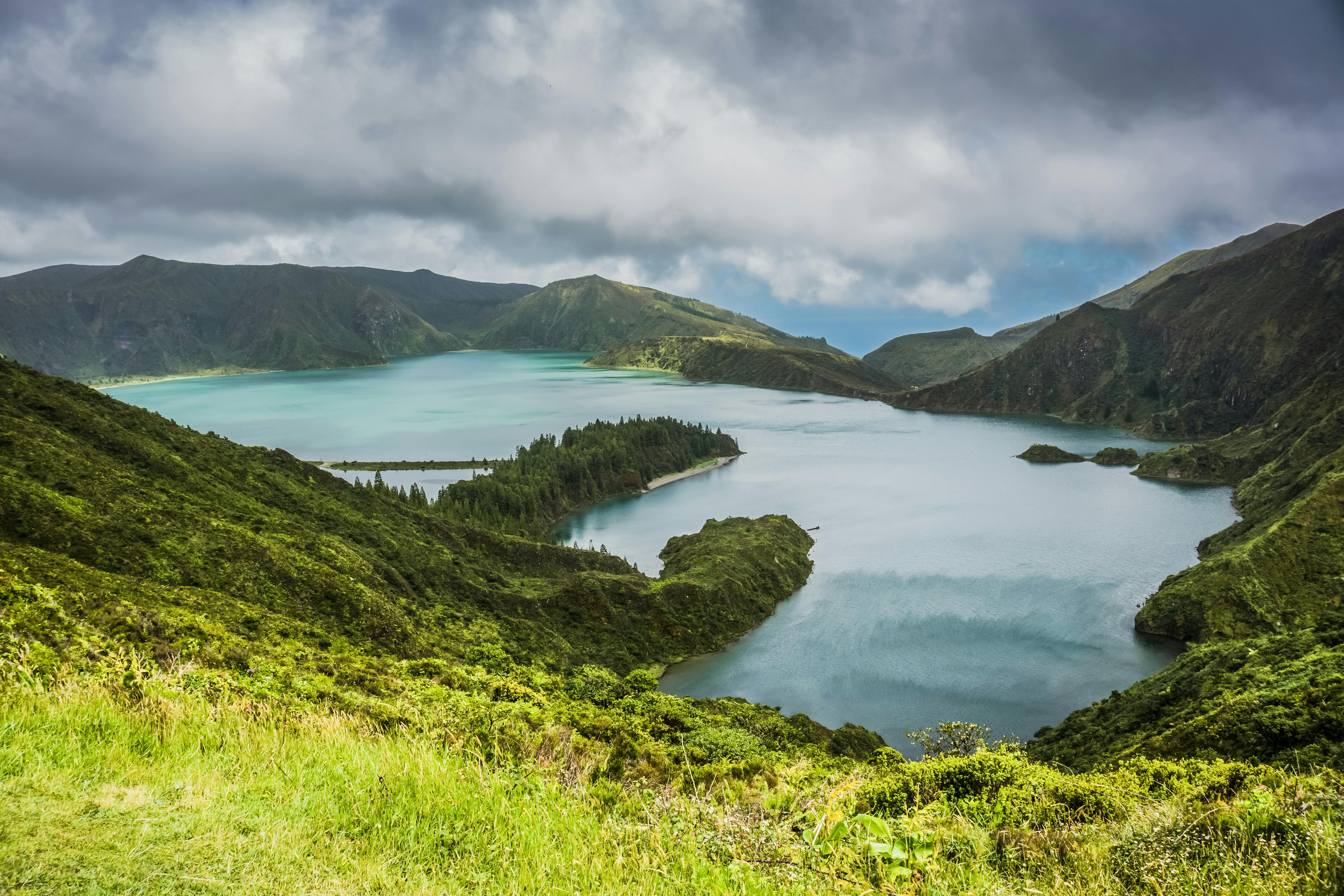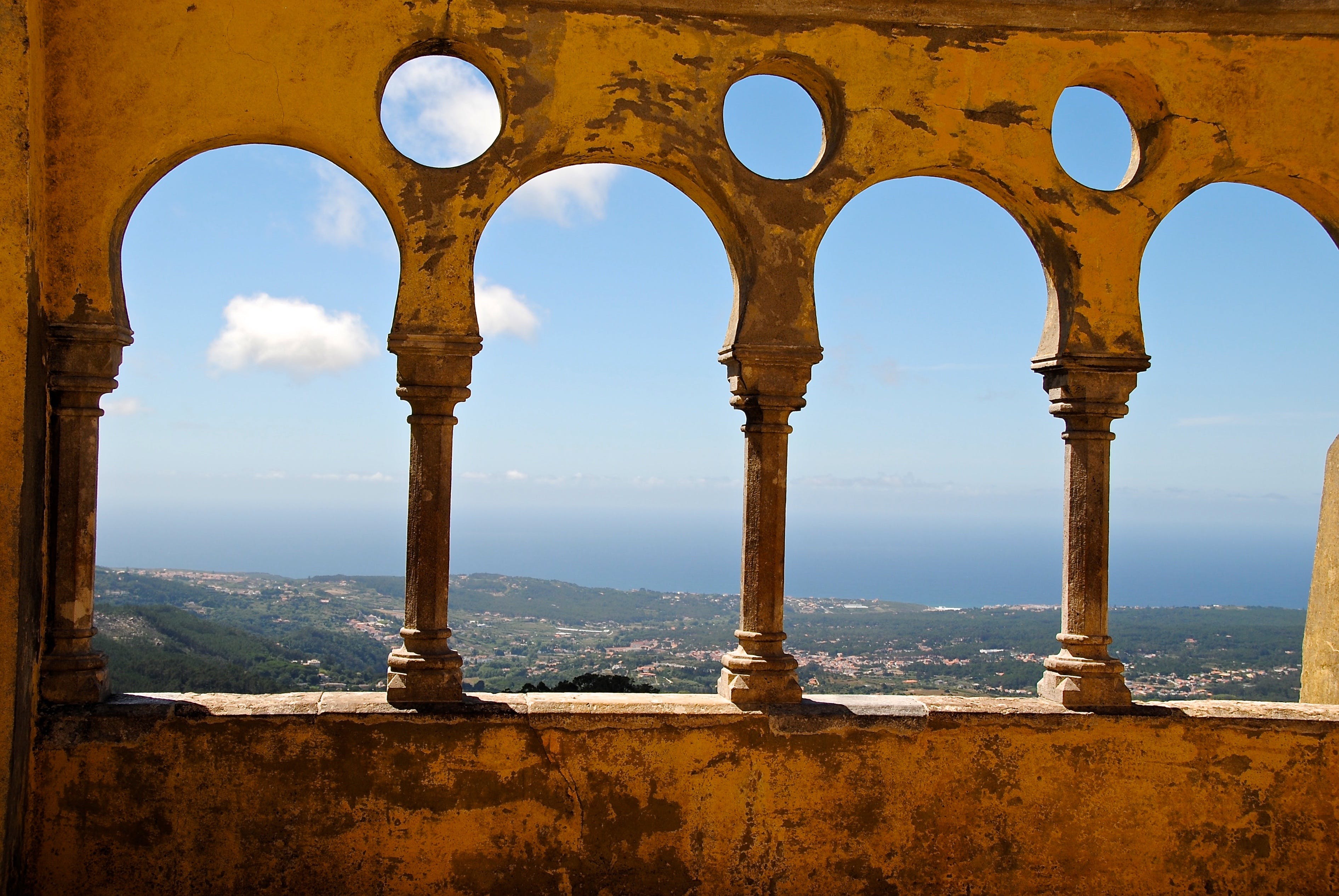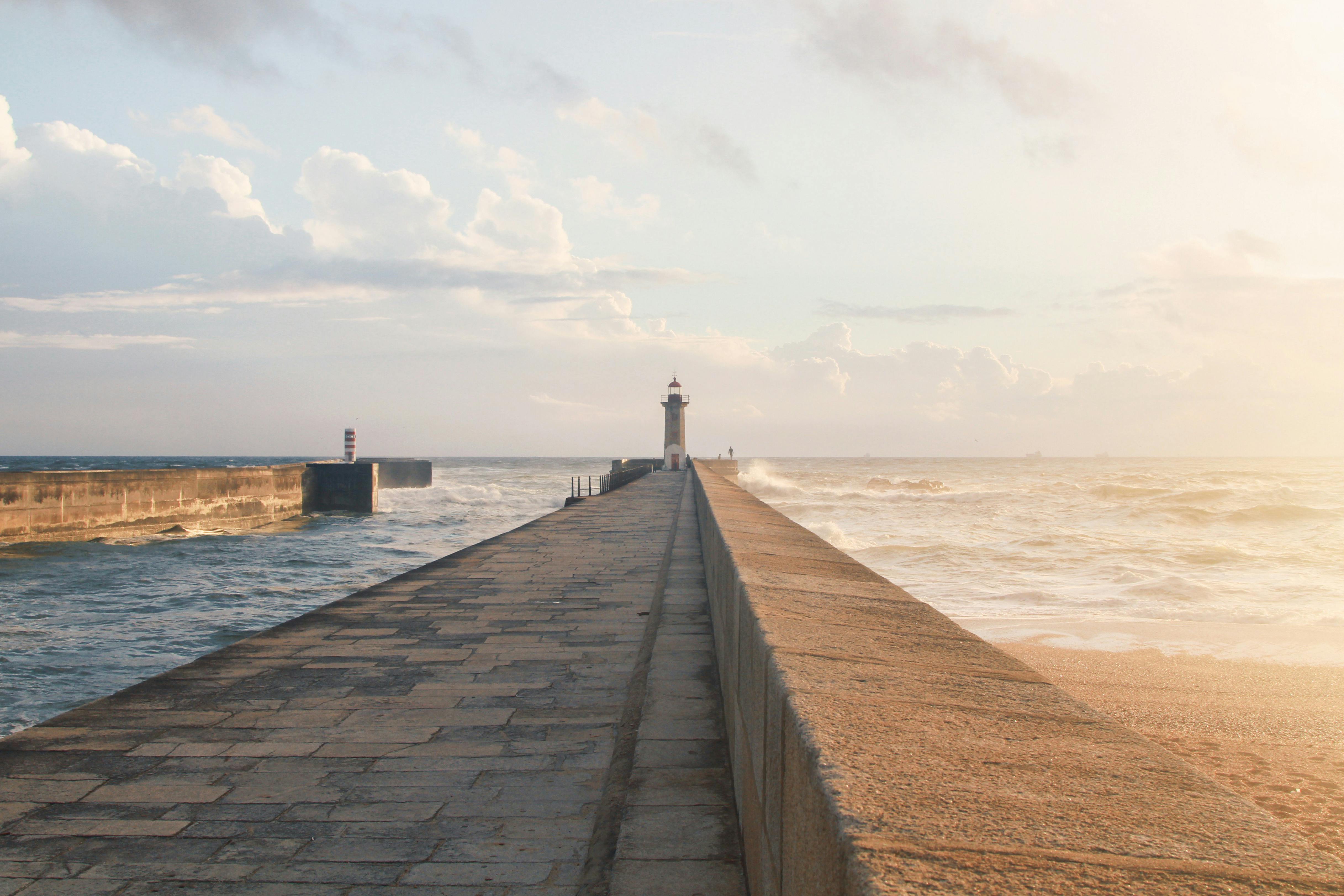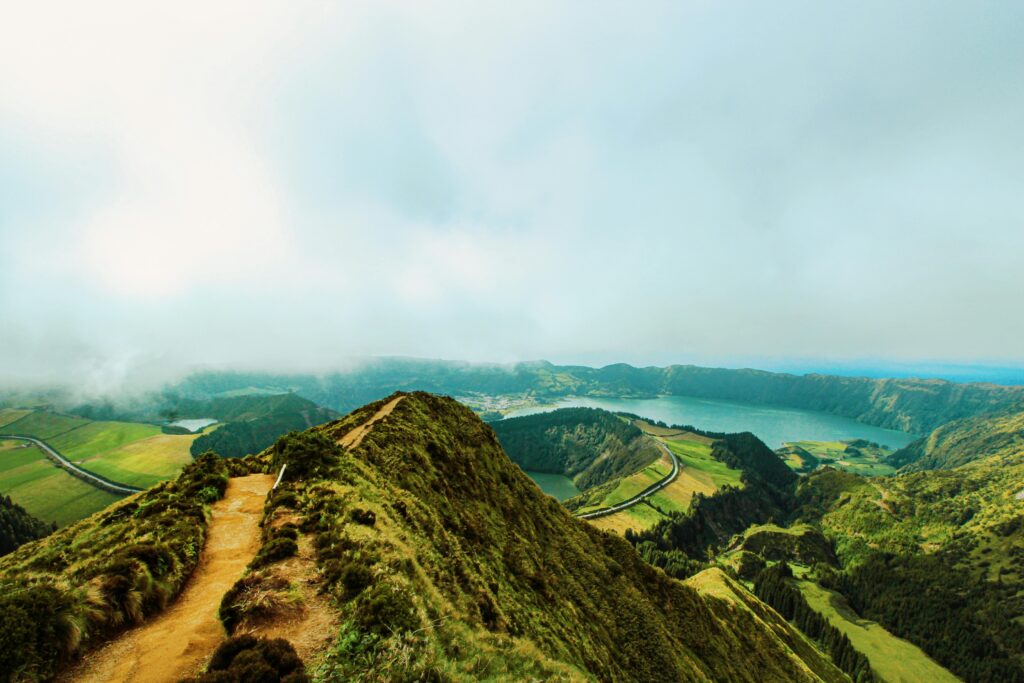The Portuguese countryside is truly a backpacker’s haven: steeped in rich cultural heritage, breathtakingly beautiful landscapes, and great eats that don’t dig too deep into one’s pocket. From Lisbon’s quaint alleys to the beaches dotting the Algarve coast, Portugal is truly a hidden treasure.
In this blog, we’ll share with you some insider details on budget transportation, pocket-friendly accommodations, and deliciously affordable eats to avoid overspending in Portugal. Whether you are a seasoned traveler or embarking on your first adventure, we have got you covered.
Embark on the trip of a lifetime through Portugal without breaking your wallet. Get ready to find some of the best hidden gems, jump into the deepness of the local culture, and make memories that will truly last a lifetime. Now, let’s dive into the world of Broke Backpacking Portugal!
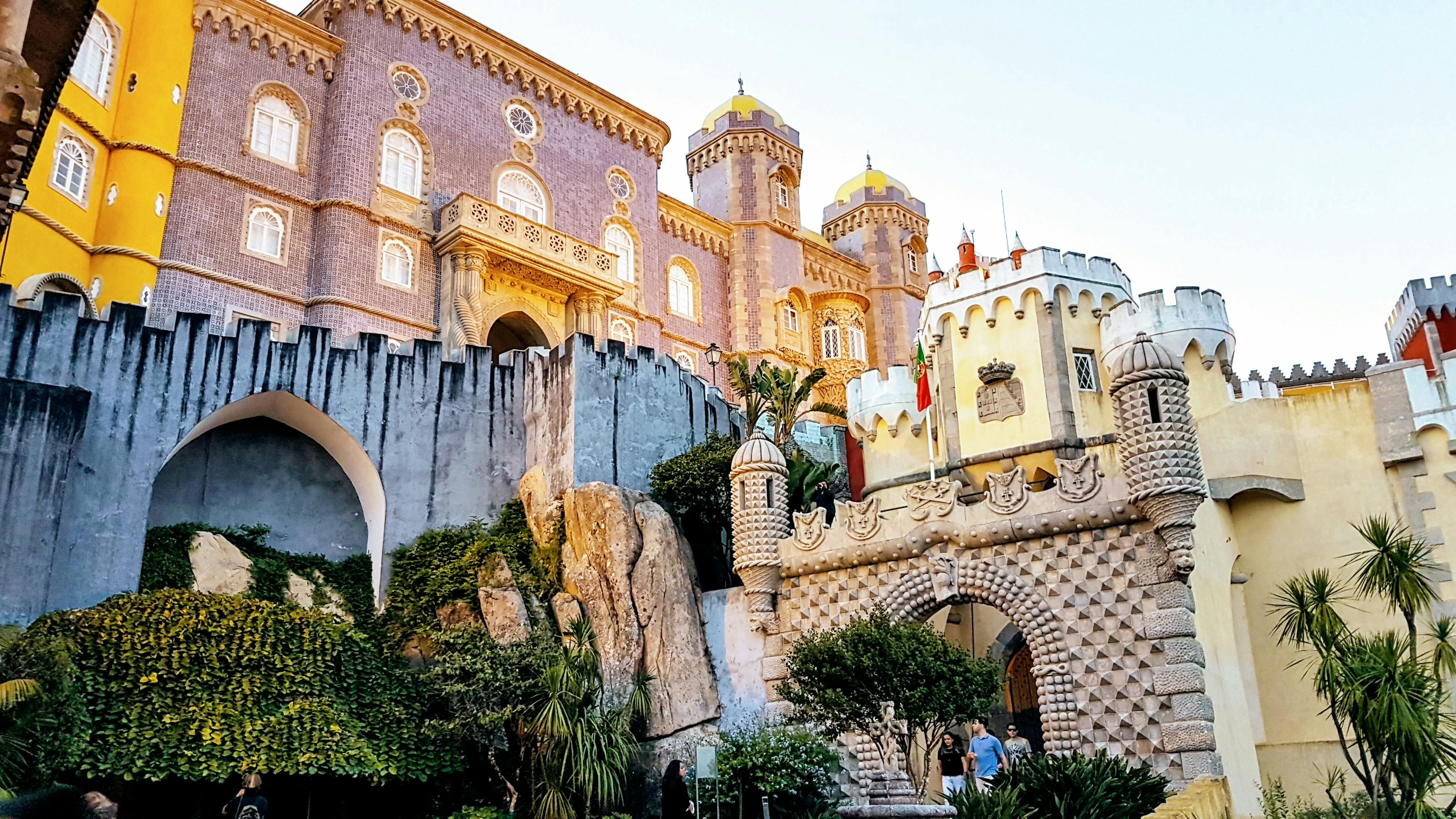
How to get there:
Bus
- Companies: FlixBus, Eurolines and ALSA
- Routes: Madrid, Barcelona and Seville to Lisbon and Porto
- Frequency: Multiple daily departures
- Prices: Starting from €10-€30
Train
- Operator: Renfe-SNCF (high-speed) and Comboios de Portugal (CP)
- Routes: Madrid to Lisbon (overnight) and Porto to Vigo
- Frequency: Multiple daily departures
- Prices: Starting from €30-€100
From Other European Countries
Bus
- Companies: FlixBus and Eurolines
- Routes: France (Paris, Lyon), Netherlands (Amsterdam), Germany (Berlin) and Italy (Rome) to Lisbon and Porto
- Frequency: Daily departures
- Prices: Starting from €20-€50
Train
- Operators: TGV (France), Thalys (Netherlands, Germany) and Trenitalia (Italy)
- Routes: Connect to Madrid or Barcelona, then transfer to Portuguese trains
- Frequency: Multiple daily departures
- Prices: Starting from €50-€200
Tips and Reminders
- Book in advance for better prices.
- Check schedules and prices on company websites.
- Consider budget-friendly options like overnight buses or trains.
- Research any necessary visas or travel documents.
Popular Border Crossings
Portugal-France: Hendaye (north)
Spain-Portugal: Tui (north), Badajoz (east) and Huelva (south)
When to go:
Spring (March-May) (the Best Time)
- Mild weather (15-20°C/59-68°F)
- Fewer tourists, lower prices
- Festivals: Lisbon Half Marathon (March), Porto Wine Festival (April)
- Budget-friendly accommodations
Summer (June-August)
- Warm weather (25-30°C/77-86°F)
- Peak tourist season, higher prices
- Beaches and festivals: Algarve Beach Festival (June), Lisbon Festival (June)
- Consider hostels or camping
Autumn (September-November)
- Comfortable temperatures (15-25°C/59-77°F)
- Shoulder season, lower prices
- Events: Lisbon Book Fair (September), Porto Wine Harvest Festival (September)
- Enjoy wine tastings and harvest activities
Winter (December-February)
- Cooler weather (10-15°C/50-59°F)
- Low season, cheapest prices
- Christmas markets and festivities: Lisbon Christmas Market (December)
- Explore museums, castles and indoor attractions
Special Events and Festivals
Porto Wine Festival: April, wine tastings and tours
Carnaval: February/March, vibrant parades and parties
Festa de Santo António: June, Lisbon’s patron saint celebration
Festa do Avante!: August, music and arts festival
Best Itineraries:
3-Day Itinerary
Day 1: Lisbon
- Explore Alfama neighborhood
- Visit Lisbon Castle (€8.50)
- Enjoy traditional Fado music
Day 2: Lisbon
- Visit Jerónimos Monastery (free)
- Relax at Belém Beach
- Try Pastéis de Belém (€2)
Day 3: Sintra
- Visit Pena Palace (€14)
- Explore Quinta da Regaleira (€10)
- Return to Lisbon for departure
1-Week Itinerary
Day 1-2: Lisbon
- Explore Alfama, Bairro Alto and Chiado
- Visit Lisbon Castle and Jerónimos Monastery
Day 3: Sintra
- Visit Pena Palace and Quinta da Regaleira
Day 4: Porto
- Explore Ribeira neighborhood
- Visit Porto Cathedral (free)
Day 5: Porto
- Visit Taylor’s Port Wine Cellars (€10)
- Relax at Miramar Beach
Day 6-7: Algarve
- Enjoy beaches in Lagos or Albufeira
- Take a sunset hike at Cape St. Vincent
2-Week Itinerary
Week 1:
- Follow the 1-week itinerary
Week 2:
Day 8-9: Óbidos and Nazaré
- Explore Óbidos’ medieval town
- Visit Nazaré’s beaches
Day 10-11: Coimbra
- Visit University of Coimbra (free)
- Explore historic downtown
Day 12-14: Lisbon and surroundings
- Visit Cabo da Roca and Cascais
- Enjoy Lisbon’s nightlife
1-Month Itinerary
Weeks 1-2:
- Follow the 2-week itinerary
Weeks 3-4:
Explore Azores Islands
- Visit São Miguel Island’s hot springs
- Hike on Faial Island
Or Explore Southern Portugal
Relax in the Algarve
Visit Sagres Fortress
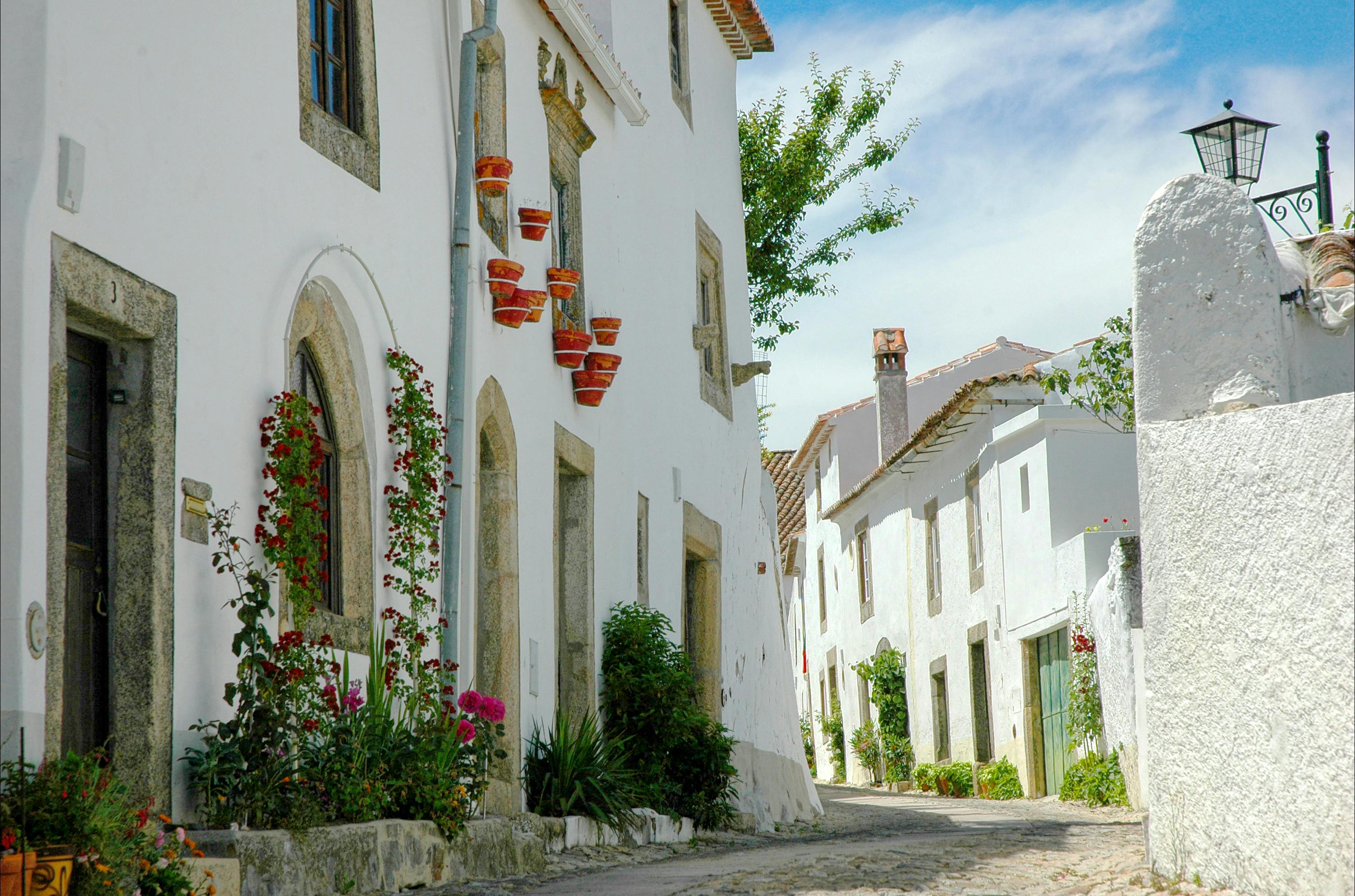
Transportation:
Public Transportation in Portugal: A Comprehensive Guide
Portugal offers an efficient and affordable public transportation network, making it easy to explore the country.
Types of Public Transportation
- Metro: Lisbon (4 lines) and Porto (6 lines)
- Bus: Urban and intercity routes
- Train: National railway network (Comboios de Portugal)
- Tram: Historic trams in Lisbon
- Ferry: Coastal routes and island connections
Metro
- Lisbon Metro: 4 lines, 46 stations
- Porto Metro: 6 lines, 81 stations
- Hours: 6:30 AM – 1:00 AM
- Frequency: 5-10 minutes
- Tickets: €1.50-€2.50 (single ride), €6.40 (24-hour pass)
Bus
- Urban Buses: Local routes in cities
- Intercity Buses: Connects cities (FlixBus, Eurolines)
- Rodoviária: National bus network
- Hours: 6:00 AM – 10:00 PM
- Frequency: 15-60 minutes
- Tickets: €1.50-€5 (single ride), €10-€30 (day pass)
Train
- Comboios de Portugal (CP): National railway network
- Types: Regional, InterRegional, Alfa Pendular (high-speed)
- Hours: 6:00 AM – 10:00 PM
- Frequency: 30 minutes – 2 hours
- Tickets: €10-€50 (single ride), €20-€100 (day pass)
Tram
- Lisbon Tram: Historic trams (E28, E15, E18)
- Hours: 9:00 AM – 8:00 PM
- Frequency: 10-20 minutes
- Tickets: €2.50 (single ride), €6.40 (24-hour pass)
Ferry
- Coastal Routes: Connects coastal towns
- Island Connections: Azores, Madeira
- Operators: Atlântico Line, Porto Santo Line
- Hours: 8:00 AM – 8:00 PM
- Frequency: 2-6 hours
- Tickets: €20-€50 (single ride), €50-€100 (day pass)
Tickets and Passes
- Viva Viagem: Rechargeable card for metro, bus, tram
- Andante: Rechargeable card for metro, bus in Porto
- CP Tickets: Train tickets
- Ferry Tickets: Available at terminals or online
Top things to do:
Lisbon
- Explore Alfama neighborhood
- Visit Lisbon Castle (€8.50)
- Jerónimos Monastery (free, but €10 for tower access)
- National Pantheon (€4)
- Take Tram 28 (€2.50)
- Miradouro de São Pedro de Alcântara
- Campo de Ourique
- Belém Tower (€6)
- Museu Calouste Gulbenkian (€10)
- LX Factory
Porto
- Explore Ribeira neighborhood
- Porto Cathedral (free, but €5 for tower access)
- Taylor’s Port Wine Cellars (€10)
- Porto Wine Museum (€8)
- Clérigos Tower (€5)
- Parque da Cidade
- Miradouro da Vitória
- São Francisco Church (€7.50)
- Museu Serralves (€10)
- Crystal Palace Gardens
Algarve
- Relax on Lagos beaches
- Explore Albufeira’s historic center
- Hike at Cape St. Vincent
- Visit Sagres Fortress (€3)
- Take a boat tour in Ria Formosa Natural Park (€20-€30)
- Explore Benagil Cave (€10-€20)
- Olhão Market
- Tavira Island
- Cabo de São Vicente
- Sierra de Monchique
Sintra
- Explore historic center
- Pena Palace (€14)
- Moorish Castle (€8)
- Cabo da Roca (€2)
- Quinta da Regaleira
- Monserrate Palace (€8)
- Sintra National Palace (€10)
- Guincho Beach
- Convent of the Capuchos
- Boca do Inferno
Coimbra
- Explore historic downtown
- University of Coimbra (free, but €10 for tower access)
- Coimbra Castle (€5)
- Portugal dos Pequenitos (€10)
- Mondego River
- Sé Velha (€3)
- Museu Nacional de Machado de Castro (€10)
- Jardim Botânico
- Aqueduct of São Sebastião
- Parque Dr. Manuel Braga
Azores Islands
- Explore São Miguel Island’s hot springs
- Sete Cidades twin lakes
- Whale watching tour (€50-€70)
- Gorreana Tea Plantation (€10)
- Faial Island’s volcanic landscapes
- Capelinhos Volcano
- Furnas Lake
- Terra Nostra Park
- Caldeira das Sete Cidades
- Mosteiro de São Tiago
Óbidos and Nazaré
- Explore Óbidos’ medieval town
- Óbidos Castle (€5)
- Nazaré’s beaches
- Nazaré Fort (€2)
- Serra do Candeeiro
- Lagoa de Óbidos
- Praia da Nazaré
- Cabo de Sines
- São Martinho do Porto
- Foz do Arelho Beach
Food:
Every dish is a kaleidoscope of flavors, textures, and aromas, rich in history, cultural heritage, and geographic diversity. Multifaceted Portuguese cuisine-from very traditional to innovative-depicts a symphony that is sure to linger in your taste buds, begging for more.
That said, the comfort of slow-cooked meals is well reflected in the hearty stews of Caldo Verde and Feijoada, staples in the Portuguese diet. Then there is Bacalhau à Brás, one of the most traditional codfish dishes, and Arroz de Pato, a renowned duck rice, both really representative of seafood and meat in Portuguese cooking. These dishes come out of humble taverns and family-run restaurants where, because of the cozy setting and filling portions, one feels right at home.
As Portugal has such a long coastline, the amount of fresh seafood is immense. It can be had grilled, in a stew of fish and seafood, and in some type of fish and shellfish stew called cataplana. Probably the best-known Portuguese sardines may be grilled or canned and must be tried when coming to Portugal. They can easily be found in restaurants, cafes, and even food stalls along the street.
Traditional Pastries: Portuguese pastries are yet another reason for the highlight. Pastéis de Belém, or custard tarts, and Farturas, deep-fried dough sticks, will both satisfy any ‘sweet tooth.’ Other traditional desserts that show how sweet-toothed the country is are Arroz Doce-or rice pudding-and Toucinho Do Céu-an almond cake.
Each of Portugal’s regions is proud of its flavors and specialties, from north to south. The north: where Francesinha is the sandwich with which one falls in love in Porto, and wine has rich flavors in Douro Valley. Chanfana is a lamb stew from Coimbra, and sweet treats belong to Óbidos in the center. The Algarve takes pride in its seafood-rich Cataplana, and in Lagos, chicken Piri-Piri is tender and succulent. Azores Islands are famous for desserts with tea, while Madeira is known for fortified wines.
Food is sacred in Portugal, and sharing mealtimes with the locals is one of the best ways to experience the culture. Take a tour around buzzing markets, such as Lisbon’s Mercado da Ribeira, offering an array of fresh produce, seafood, and local products. Do not miss out on the street food, too, and traditional coffeehouses-cafés-to enjoy strong coffee and pastries.
Nowadays, modern chefs took it one step further, fusing tradition with innovation. Restaurants like Alma in Lisbon or Boa Nova in Porto offer modernist takes on classic dishes that will surprise your taste buds. Wine tastings and vineyard tours are also a great way to learn about the various wines of Portugal, such as Port, Vinho Verde, and Alentejo, which perfectly accompany the cuisine of this country.
Meanwhile, never miss visiting local taverns and family-run restaurants while exploring the food world of Portugal. Not only the flavors but also the hospitality provided is quite different from any other place. Go for traditional coffeehouses and explore food festivals and markets showcasing the pace difference in the food culture of the country.
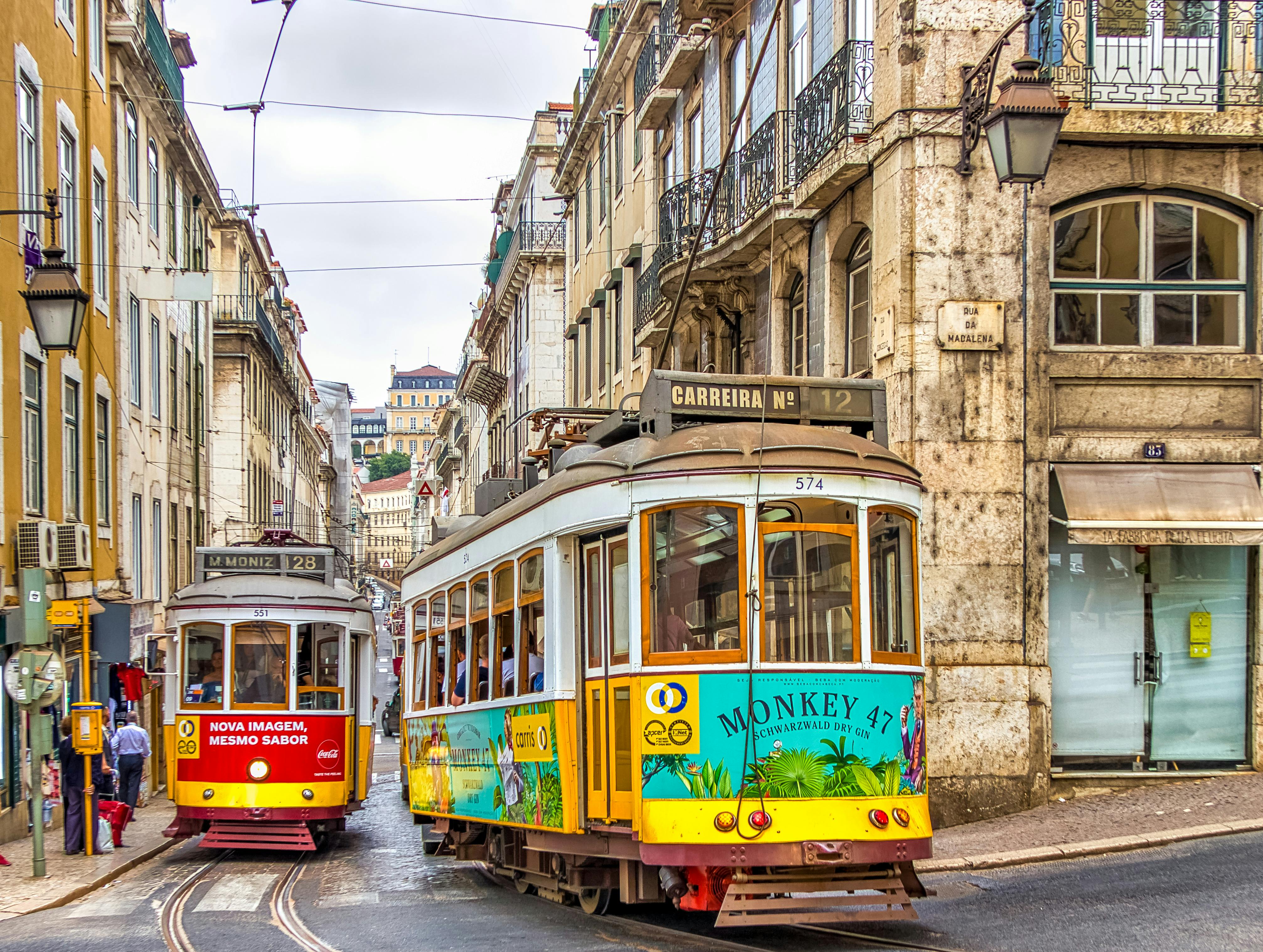
Culture:
Culture in Portugal is a vibrant tapestry, really interwoven through the history, traditions, and influences that make up the country. At the southwestern edge of Europe, the country has become an important crossroads of cultures, hence the molding of its identity. From colored villages to bustling cities, architecture reflects the culmination of rich heritage that makes up Portugal.
From Manueline, Baroque to Gothic, all styles unite together, testifying to the depth of history contained within the country. This is epitomized by the Jerónimos Monastery in Lisbon and the Porto Cathedral. Azulejo tiles give a touch of grace to churches, palaces, and homes.
Festivals and Celebrations form an integral part of the Portuguese culture. Lisbon’s Festa de Santo António and Setúbal’s Festa do Avante! are full of colorful music, dancing, and traditional costumes that make one want to join in. Carnaval events in Loulé and Nazaré bear witness to how life is abundant everywhere in Portugal. Traditional folk dances, such as Rancho Folclórico, raise deep emotions.
The traditional music, majorly Fado, is listened to across the streets in Alfama at Lisbon. Stirring melodies ring through narrow streets to take possession of Portuguese soul. Other genres, such as Coimbra’s student music, also help in reinforcing this cultural treasure.
Portuguese literature includes famous authors like Luís de Camões, Fernando Pessoa, and José Saramago. Their writings constitute a part of Portuguese history and culture and allow one to peep into the national psyche. Camões’ epic poem, “Os Lusíadas,” represents Portuguese literature at its finest.
Family is very important in Portuguese culture, as are social relationships. There is a great emphasis on the closeness of families and hospitality in everyday life. Mealtimes are sacred: one eats traditional dishes with family or loved ones. Sunday lunches are usual, either with Bacalhau à Brás or Feijoada.
Catholicism has been an influential factor in the building of cultural identity in Portugal. Very impressive cathedrals and chapels with picturesque appearances dot the landscape, showing spiritual devotion in numerous religious festivals and processions. The famous pilgrimage site of Fátima attracts millions every year.
Large regional traditions, with marked dialects, customs, and folklore, flourish. The Azores and Madeira islands maintain their own special cultural identities given by their history and geography. Very colorful local festivals, like the Festa da Flor do Madeira, are held.
From cultural diversity to an explosion of colors: lively Portuguese arts-both modern artists juxtapose traditional techniques with modern styles. World-class collections abound in museums like Lisbon’s Museu Calouste Gulbenkian, which features an impressive collection in the National Museum of Ancient Art.
Live the real culture of Portugal-participate in traditional festivals, stroll through historic neighborhoods, and be welcomed by friendly locals. Take the chance to visit charming villages, such as Óbidos and Sintra, and let their secrets be unfolded.
The country has a very rich tapestry of cultural elements: threads of history, tradition, and creativity woven together. Its warm hospitality means an unforgettable experience.
Accommodations:
Portugal’s hostels are a haven for the broke backpacker seeking unforgettable experiences. Forget luxury and consistency; the cheapest options often yield the most unique, crazy-amazing encounters. Budget-friendly hostels are so much more than affordable places to stay; they’re gateways to adventure.
Travelers find serendipity and lifelong connections in embracing the unpredictable. Booking the cheapest options means surrendering to serendipity. Each hostel uniquely reflects the character of its surroundings, from quirky decor to eccentric staff-members-a promise of surprise with each stay.
The social atmosphere in these hostels is electrifying. They turn out to be very social melting pots, bringing together travelers from all parts of the globe. Shared dorms forge camaraderie; communal spaces showcase impromptu jam sessions, cooking parties, or heated debates. Tales are shared, laughs are exchanged, and lasting relationships are formed among travelers.
Through these affordable accommodations, many in residential areas, guests are submerged into the real Portuguese way of life. This would offer guests the ability to venture into the surrounding markets, cafes, and alleyways to soak up the culture. Many find street art, local eateries, and family-run shops carrying the true heart of Portugal.
Cheaper hostels often organize spontaneous day trips or point travelers in directions for off-the-beaten-path attractions. Share with other travelers at the hostel on sunset hikes, beach days, or underground club nights. These unplanned experiences forge long-lasting memories and bonds.
And some have unexpected perks: rooftop gardens, communal kitchens or on-site bars. Others provide instruments or art supplies and encourage creativity. These kinds of little flourishes make these hostels great places to hang out.
The standard definition of poor backpacker-travelers still: flexibility over luxury. Low-budget hostels in Portugal embrace changes of plans, and their relaxed attitude means backpackers can take impulsive detours or stay on for extra days. This freedom allows travelers to uncover the lesser-known nooks and crannies of Portugal.
Research the atmosphere and location to find your best fit. Book ahead, during peak season, but be flexible for last-minute changes. Interact with the staff and other travelers for local secrets and inside tips.
The Portugal hostels reward the risk-takers. With cheaper options very unpredictable, the broke backpacker ends up in a world beyond the guidebooks: one of genuine connections, wild adventures, and memories that just won’t subside.
Come and experience Portugal’s renowned culture, breathtaking landscapes, and friendly locals. Broke backpackers, let this be your next adventure as you surrender to spontaneity and fun in the hostels of Portugal.
The hostel experience is more than a place to lay your head; it’s local life in itself. Share dinner with other travelers, share stories, and make lifelong friends.
Portugal’s hostels are affordable and the keys toward uncovering its best-kept secrets, such as hidden attractions. Find secret beaches, explore historic neighborhoods, and enjoy real food.
If you’re looking for the real deal, head to less touristy parts of the country. Check out Alentejo or Centro in Portugal-the region that will give you a very warm welcome. The hostels in Portugal are more than a budget place to stay; they are a community in themselves, a starting point of adventure, and a passport to memories which you will carry lifelong.
Nightlife:
From the tranquil seaside towns to the pulsating cities, Portugal is bathed with nights full of energy and moments of unforgettable experiences. And when the night comes on, a whole new magical world of music, dancing, and revelry opens up in Portugal.
Summer transforms Algarve’s beach towns into party destinations, summoning them to life. Bars and clubs leak right onto the sand, electronic beats ejected by DJs. The hotspots of Lagos, Albufeira, and Praia da Rocha shimmer like lanterns, luring sun-kissed revellers into a night of abandon.
Lisbon and Porto are well known for their nightlife. In Lisbon, particularly in Bairro Alto, Cais do Sodré, or the houses of Fado, one can find bars and discos everywhere. It is also the case with Ribeira in Porto. Coimbra is never dull during the night; its students would never let that happen, with academic demands mixed with nights full of lives. University districts turn into nightlife hotspots.
Get an insight into real Portuguese nightlife in traditional tascas or fado houses. Hear soulful melodies, sip wine, and participate in moments of conviviality. These small nooks and corners provide a passage toward the great cultural heritage of Portugal, where contact with locals is also possible.
Throughout the year, a lot of festivals are performed all around Portugal. It is filled with energy and colored cultural attributes. Carnaval parade and street parties in Loulé and Nazaré, Lisbon’s Festa de Santo António and Porto’s Festa do Avante! are the events that provide music and cultural activities worth looking at, as it displays their national pride.
Discover nightlife in underground clubs and live music venues. Lux Frágil in Lisbon and Casa da Música in Porto offer avant-garde shows, fully satisfying the tastes of indie and electronic music lovers. All this makes these places very special for such events.
Summer beach parties with burning bonfires and DJs playing electronic music are common. The atmosphere here is incomparable. Such epic beach parties take place in Nazaré and Ericeira.
Enjoy sophisticated nights of wine and jazz. The wine bars in Porto and the jazz bars in Lisbon await your refined entertainment for connoisseurs in search of class.
To make the most of nightlife in Portugal, get used to the neighborhoods, ask for tips from locals, and be flexible. Some nights are still young at early morning! Drink responsibly and respect local customs.
The country’s tourist website will point you toward some useful nightlife guides and event calendars. Research, plan and indulge in local culture, electrifying entertainment, and stunning scenery.
From raucous beach parties to hip city clubs, nightlife in Portugal is an unforgettable experience: stroll down cobblestone streets, pop into hidden bars and revel in raucous parties.
From north to south, each of Portugal’s regions has its own flavor of nighttime revelry. Enjoy classic cocktails in Alentejo’s rustic taverns or take advantage of Madeira’s bars and their views out over the Atlantic Ocean.
Vibrant Portuguese cities, during the time of festivals, translate into electric nights. In fact, two of the most significant national expressions are Lisbon’s Festa de Santo António and Porto’s Festa do Avante!
Relax into the cool-ness of the Portuguese attitude to life and the spontaneity of its nightlife. From traditional rhythms to the beat from electronic DJs, allow yourself to be taken along in nights to remember.
Portugal waits for you, ready to cast a spell on unforgettable nights.
Backpacking Portugal costs:
Daily Budget
- Accommodation: $10-15 (hostel dorms)
- Food: $3-6 (supermarket shopping, street food)
- Transportation: $2-5 (metro, bus)
- Attractions: Free (walking tours, parks) to $5 (museums)
- Total: $15-26
Weekly Budget
- Accommodation: $70-105 (7 nights in hostel dorms)
- Food: $21-42 (supermarket shopping, street food)
- Transportation: $14-35 (metro, bus, intercity trains)
- Attractions: $35-70 (free walking tours, museums)
- Total: $140-252
Conclusion:
As you embark on your Broke Backpacker journey through Portugal, remember: it’s the journey, not the arrival. You can get amongst all of that Portuguese flair, with its crazy culture, stunning landscapes, and really warm welcomes, for as little as $15 per day.
Besides being very affordable, Portugal has so much history and nature that any traveler on a broke budget will find it an ideal destination. Be it lost in Lisbon’s historic neighborhoods or simply catching the sun on the beaches along Algarve, every moment presents an opportunity to create unforgettable memories.
Venture off the beaten path, speak to locals, and don’t miss any new experiences. You’ll feel right at home in this laid-back country with a very welcoming nature.
The rest is Portuguese finery. So travel light, travel slow, and take in the essence of Portugal. Your wallet might be thin, but your heart will be full. Happy travels!
